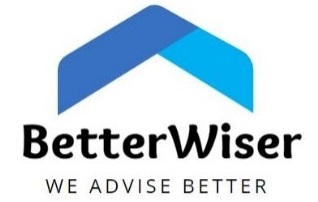Internal Audit
Enhancing Your Business Efficiency and Security
In today’s rapidly changing business environment, maintaining robust internal controls and ensuring compliance is more important than ever. An Internal Audit is a critical tool to assess and improve the effectiveness of risk management, governance, and internal controls within an organization. At Betterwiser Services Private Limited, we provide comprehensive internal audit services that help businesses identify risks, improve processes, and achieve their strategic objectives.

What is an Internal Audit?
An Internal Audit is an independent, objective assurance and consulting activity designed to add value and improve an organization’s operations. It involves a systematic review of processes, controls, and risk management practices to ensure compliance, operational efficiency, and the safeguarding of assets. Internal audits help organizations achieve their goals by bringing a disciplined approach to evaluating and improving the effectiveness of risk management, control, and governance processes.
What Kind of Risks Do Businesses Face?
Businesses face a wide range of risks, including:
- Financial Risks: Errors or fraud in financial reporting, inadequate financial controls, and inefficient use of resources.
- Operational Risks: Inefficiencies in processes, failure to achieve objectives, or disruptions to business operations.
- Compliance Risks: Non-compliance with laws, regulations, or industry standards, leading to fines, penalties, and reputational damage.
- Strategic Risks: Risks that affect the achievement of strategic goals, such as market changes, competitive threats, or poor decision-making.
- Reputational Risks: Damage to the organization’s reputation due to fraud, poor performance, or non-compliance.
- Cybersecurity Risks: Threats from data breaches, hacking, and other cyber-attacks that can compromise sensitive information.
Why is an Internal Audit Required?
- Identify and Mitigate Risks: Detect potential risks early and take corrective action to prevent financial losses or damage.
- Improve Operational Efficiency: Identify inefficiencies in processes and recommend improvements to enhance productivity.
- Ensure Compliance: Verify adherence to internal policies, laws, regulations, and industry standards to avoid penalties and fines.
- Enhance Decision-Making: Provide management with accurate and timely information to make informed decisions.
- Protect Assets: Ensure that assets are safeguarded against fraud, theft, or misuse.
- Promote Accountability: Foster a culture of accountability and continuous improvement throughout the organization.
Types of Internal Audit
- Financial Audit: Evaluates the accuracy and reliability of financial records, including checks for errors, fraud, and compliance with accounting standards.
- Operational Audit: Focuses on the efficiency and effectiveness of business operations, identifying areas for improvement.
- Compliance Audit: Ensures that the organization complies with internal policies, laws, and regulations.
- Information Systems Audit: Assesses the security, integrity, and efficiency of IT systems and processes.
- Performance Audit: Evaluate whether resources are being used efficiently to achieve organizational goals.
- Environmental Audit: Reviews the organization’s environmental practices to ensure compliance with environmental regulations and standards.
Why is Internal Audit Beneficial?
- Strengthens Internal Controls: Helps in designing and maintaining strong internal controls to prevent fraud and errors.
- Enhances Business Performance: Identifies opportunities for cost savings, process improvements, and operational efficiencies.
- Supports Compliance: Ensures adherence to legal and regulatory requirements, reducing the risk of fines and penalties.
- Boosts Stakeholder Confidence: Provides assurance to stakeholders, including investors and regulatory bodies, about the organization’s commitment to governance and transparency.
- Facilitates Risk Management: Proactively identifies and addresses risks, protecting the organization from potential losses.
How to Choose the Right Partner for Internal Audit
Choosing the right partner for an audit is crucial for effective risk management and process improvement. Here are key factors to consider:
- Experience and Expertise: Look for a partner with extensive experience and specialized knowledge in your industry.
- Reputation and Credibility: Choose a firm with a solid reputation for integrity, independence, and quality service.
- Comprehensive Service Offering: Opt for a partner that provides a full range of internal audit services, from financial audits to IT audits.
- Use of Advanced Tools: Ensure the partner uses modern tools and methodologies to enhance the effectiveness of the audit process.
- Client-Focused Approach: Select a partner who understands your specific needs and offers tailored solutions to meet them.
How Betterwiser Services Private Limited Can Help
At Betterwiser Services Private Limited, we offer a wide range of audit services tailored to your business needs:
- Customized Audit Plans: Our experts design audit plans that align with your organizational goals, risk profile, and regulatory requirements.
- Comprehensive Risk Assessment: We conduct thorough risk assessments to identify and mitigate potential threats across your business operations.
- Financial Audits: Our team evaluates the accuracy of your financial records, ensuring compliance with accounting standards and detecting any discrepancies.
- Operational Audits: We review your business processes to identify inefficiencies and recommend improvements.
- Compliance Audits: We verify compliance with internal policies, laws, and regulations, helping you avoid penalties and maintain a strong reputation.
- Information Systems Audits: We assess your IT infrastructure and controls to ensure data security and operational integrity.
- Continuous Monitoring and Reporting: We provide ongoing monitoring and detailed reports to help you stay ahead of potential risks and make informed decisions.
Why Choose Betterwiser Services Private Limited for Internal Audits?
- Experienced Professionals: Our team comprises seasoned auditors with deep expertise in various industries and a strong commitment to excellence.
- Client-Centric Approach: We focus on your unique needs, offering customized solutions that address your specific risks and objectives.
- Advanced Tools and Techniques: We leverage the latest tools and methodologies to deliver accurate, reliable, and timely audit results.
- Holistic Services: We offer a comprehensive range of internal audit services, covering all aspects of risk management and compliance.
- Proven Track Record: We have successfully helped numerous businesses enhance their internal controls and governance practices, earning trust and credibility in the industry.
How We Stand Out from Competitors
- Customized Solutions: We understand that every business is unique. Unlike many competitors, we provide tailored solutions to meet your specific requirements.
- Innovative Techniques: We utilize advanced auditing tools and techniques to provide thorough, efficient, and effective audits.
- Transparent Communication: We maintain open communication with our clients, ensuring clarity and confidence throughout the audit process.
- Commitment to Quality: Our dedication to delivering high-quality services has earned us a reputation for excellence and reliability.
Ready to Strengthen Your Business with an Internal Audit? Contact Us Today!
Don’t wait until it’s too late to identify and address potential risks. Contact Betterwiser Services Private Limited today to schedule a consultation and learn more about our audit services.
Email: support@betterwiser.co.in
Phone: +91-98189 82759
Frequently Asked Questions (FAQs)
What is the primary purpose of an internal audit?
An internal audit aims to assess and improve the effectiveness of risk management, internal controls, and governance processes within an organization.
How often should a business conduct an internal audit?
The frequency of internal audits depends on the organization's size, complexity, and risk profile, but they are typically conducted annually or semi-annually.
What types of risks can an internal audit help mitigate?
Internal audits can help mitigate financial, operational, compliance, strategic, reputational, and cybersecurity risks.
What is the difference between an internal audit and an external audit?
An internal audit is conducted by the organization or a third party to improve internal processes, while an external audit is performed by independent auditors to provide an opinion on the financial statements.
How can internal audits improve business performance?
Internal audits identify inefficiencies, recommend process improvements, and enhance risk management, leading to better decision-making and increased profitability.
What qualifications should an internal auditor have?
Internal auditors should have relevant certifications (e.g., CIA, CISA), experience in auditing, and knowledge of industry-specific regulations and best practices.
Can internal audits help with regulatory compliance?
Yes, internal audits ensure that the organization complies with relevant laws, regulations, and internal policies, reducing the risk of fines and penalties.
What should a company look for when choosing an internal audit partner?
Consider factors such as experience, reputation, a comprehensive service offering, use of advanced tools, and a client-focused approach.
How do internal audits contribute to risk management?
Internal audits proactively identify and assess risks, recommend controls to mitigate them, and monitor their effectiveness over time.
How do I get started with an internal audit?
Contact a qualified internal audit firm to discuss your needs, schedule a consultation, and develop a customized audit plan.





